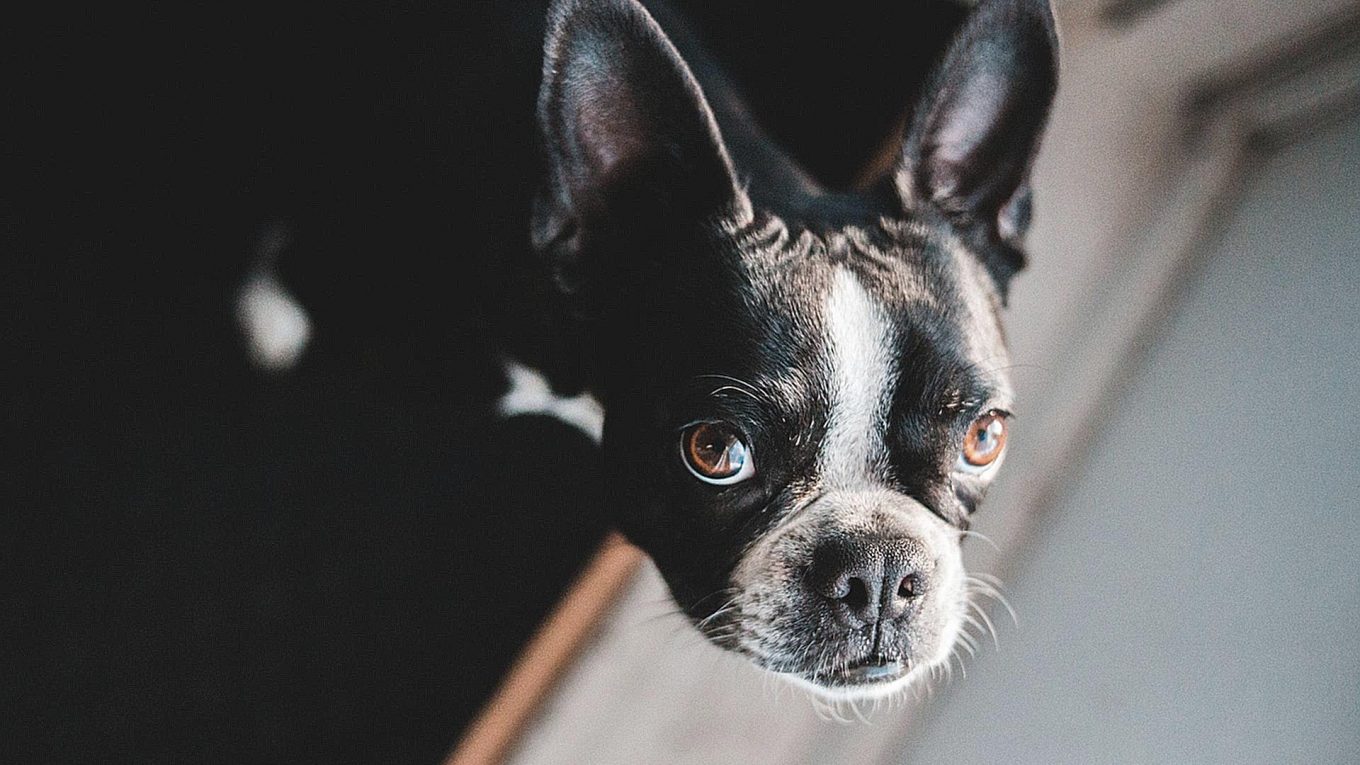When to Neuter Your French Bulldog?
Wondering when to neuter your French Bulldog? It’s an important decision that shouldn’t be taken lightly. Neutering can have a major impact on your dog’s physical and mental wellbeing, so it’s essential to consider all the factors involved before making a choice.
We’ll look at when is the best time to neuter your French Bulldog, why it’s important, and what benefits neutering can bring. Plus, we’ll discuss the risks associated with the procedure and how to ensure you make the right decision for your pet.
Choosing when to neuter your French Bulldog can be daunting. But don’t worry – we’re here to help. Let’s start by exploring why neutering is so important in the first place. Not only does it reduce the risk of certain diseases, but it also helps control aggressive behaviour in male dogs. Neutered dogs are less likely to wander away from home or fight with other animals, making them more manageable and less likely to cause trouble in their neighbourhoods.
Neutering can also prevent unwanted pregnancies in female dogs, which could lead to puppy overpopulation and an increase in homeless pets. Plus, neutering can improve overall health by reducing the risk of certain types of cancer and viruses that could otherwise affect your dog’s life span.
So when should you neuter your French Bulldogs? Experts usually recommend neutering male and female dogs between six months and one year old – although there may be exceptions depending on breed size or other conditions such as age-related health problems or pre-existing conditions that need special attention before surgery takes place.
We hope this blog post has given you some useful advice about when is the right time to neuter your French Bulldog. Remember that neutering should always be done under veterinary supervision for maximum safety and efficiency – so please don’t hesitate to contact us if you have any questions or concerns about this procedure.
Benefits of Neutering Your French Bulldog
Contents
- 1 Benefits of Neutering Your French Bulldog
- 2 When is the Ideal Age to Neuter a French Bulldog?
- 3 Potential Health Risks of Neutering Too Early or Too Late
- 4 How to Prepare for Neutering Surgery
- 5 What to Expect After Neutering Surgery
- 6 How to Care for Your French Bulldog After the Procedure
- 7 Conclusion
Neutering or spaying your French Bulldog is a decision that requires careful consideration. While it can offer numerous health and psychological benefits, there are also risks associated with early neutering/spaying.
For male French Bulldogs, neutering reduces testosterone levels, leading to a decrease in male-specific behaviors such as marking, humping, and aggression. It also lowers the risk of testicular cancer and prostate issues. Female French Bulldogs benefit from spaying in that it eliminates the possibility of unwanted pregnancies and minimizes the risk of uterine infections and mammary tumors.
Neutering or spaying your French Bulldog can also result in improved behavior, such as reduced aggression towards people or other animals, as well as decreased energy levels which will make them more manageable and less likely to escape or get into fights with other dogs.
The American Veterinary Medical Association recommends neutering or spaying between six and twelve months of age; however, some veterinarians may suggest waiting until your dog is fully grown (generally around two years old) to reduce the risk of certain health problems related to early neutering/spaying. Ultimately, it’s important to consult with your veterinarian to determine the best age for neutering or spaying your French Bulldog based on their individual needs.
When is the Ideal Age to Neuter a French Bulldog?
When it comes to neutering your beloved French Bulldog, the ideal age is not always clear-cut. It depends on various factors, such as the dog’s health, breed, and lifestyle. However, most veterinarians recommend neutering or spaying French Bulldogs between six and nine months of age.
At this stage, French Bulldogs are usually sexually mature and their hormones are starting to kick in, increasing the chances of unwanted behaviors like aggression, dominance, and roaming. Neutering a French Bulldog before they reach sexual maturity can help prevent these behaviors from developing and reduce the risk of unwanted litters.
Moreover, neutering a French Bulldog at the appropriate age can also reduce the risk of several health problems, such as testicular cancer and prostate issues. However, some vets suggest waiting until a dog is older to neuter or spay to allow them to fully develop since early neutering may affect their growth and increase the risk of some orthopedic issues. In addition, neutering can also increase the risk of obesity which can lead to other health problems.

Ultimately, determining when is the ideal age to neuter a French Bulldog depends on various factors and it is best to consult with a veterinarian who can assess your pup’s individual circumstances and give you advice on what is best for them.

Potential Health Risks of Neutering Too Early or Too Late
Neutering your French Bulldog is a decision that requires careful consideration. If done too early or too late, it can lead to long-term health issues and other risks.

Neutering too early can deprive your pup of the hormones necessary for proper growth, resulting in stunted growth and joint problems. Studies have also linked early neutering to an increased risk of certain cancers such as lymphoma and osteosarcoma, as well as urinary issues like incontinence and urinary tract infections.
On the other hand, neutering too late can raise the risk of aggression and territorial behavior in male dogs, as well as obesity, diabetes, and joint disease in both sexes. Female dogs spayed later in life are also more likely to develop breast cancer and uterine infections.
The American Veterinary Medical Association (AVMA) recommends consulting with your veterinarian regarding the timing of neutering. Generally speaking, it’s best to neuter your French Bulldog between six to twelve months of age for males, and before their first heat cycle for females, in order to minimize any potential health risks while still reaping the benefits such as preventing unwanted pregnancies or behavioral changes.
Ultimately, your veterinarian will be able to provide you with personalized advice regarding when is the right time for neutering your pup based on their individual needs and circumstances.
How to Prepare for Neutering Surgery
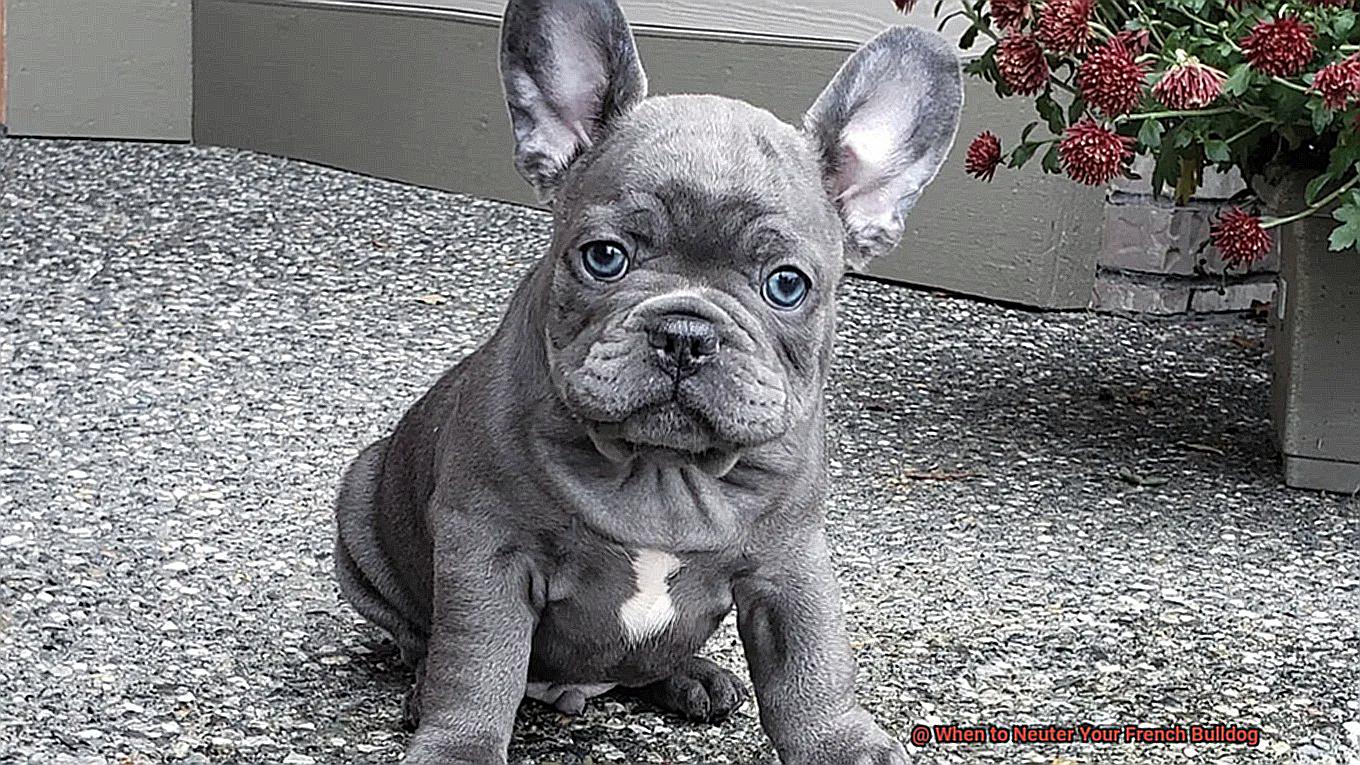
Neutering your French Bulldog is an important decision that requires careful consideration. To ensure your Frenchie has a successful and safe surgery, it is essential to take the necessary steps to prepare them. Here are five ways you can prepare your Frenchie for neutering surgery:
Consult with your veterinarian
Before the procedure, book an appointment with your vet to discuss the procedure and ask any questions you may have. They will also provide instructions on how to prepare for the surgery, such as fasting requirements.
Follow fasting instructions
Typically, your vet will ask you not to feed or water your dog for a certain period before the surgery. It is critical to follow these guidelines in order to ensure your dog’s safety during anesthesia.
Create a calm environment
On the day of the surgery, make sure that your dog’s environment is calm and quiet in order to reduce their anxiety. Consider playing some soothing music or leaving a familiar object, like a blanket, for them to cuddle with.
Plan for aftercare
Your dog will need time to recover after the procedure, and you may need to pay extra attention to them during this time. Make sure they have a comfortable place to rest and plan on staying with them for the first few days after their surgery. Your vet may also provide additional aftercare instructions such as administering medication or keeping the incision site clean.
Monitor behavior and symptoms
After their surgery, it is essential that you monitor your Frenchie’s behavior and symptoms over the next few days or weeks in case something unusual occurs that requires further medical attention from your vet.
What to Expect After Neutering Surgery
Neutering your French Bulldog is a significant decision that can result in numerous health and psychological benefits. It’s critical to monitor your dog’s recovery and follow the instructions provided by your veterinarian after surgery. Here are five things you may not expect after neutering your French Bulldog.
Pain Relief
Your pup may experience some discomfort and pain during the first few days of recovery, which can be managed with pain relief medication prescribed by your vet. Be sure to follow their instructions closely and avoid administering any other form of medication without consulting a healthcare specialist.
Rest
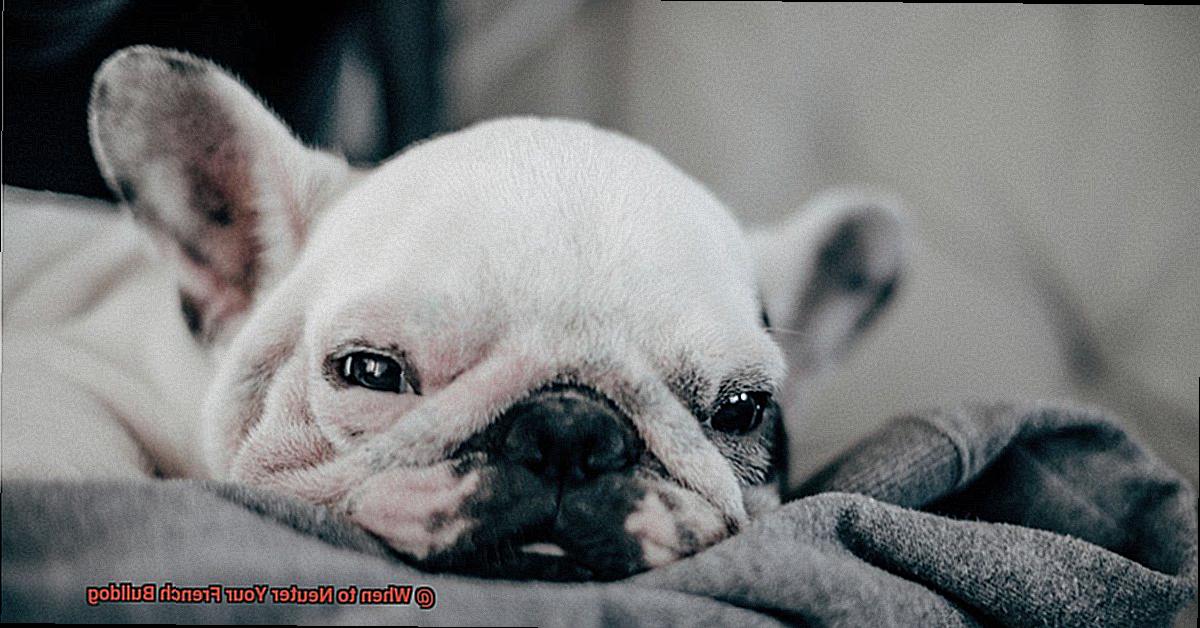
To ensure proper healing of the incision site, it’s important to keep your dog calm and quiet for the first few days post-surgery. Avoid letting him run around or jump on stairs or slippery floors that could lead to further injury.
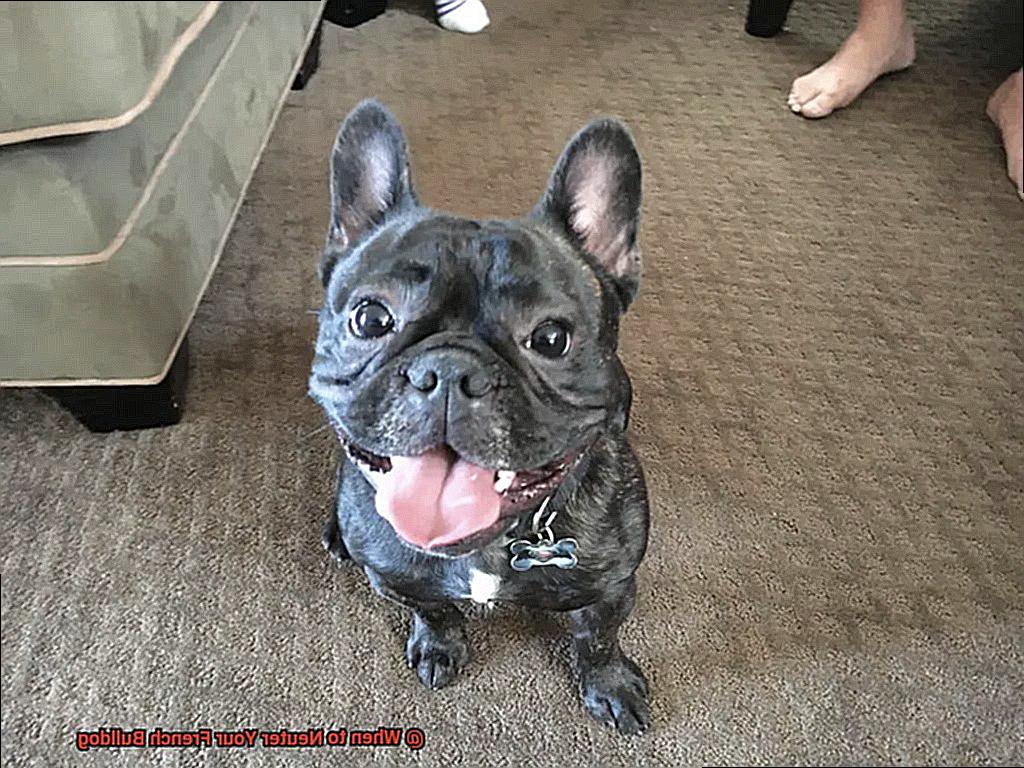
Behavior Change
Neutering can lead to a decrease in testosterone levels, which may cause changes in your pup’s behaviour, such as reduced aggression or territoriality. However, neutering will not change his personality; it just helps him become calmer and less active overall.
Weight Gain
Some French Bulldogs gain weight after being neutered due to a slower metabolism rate, so it’s important to monitor his diet and exercise regularly in order to prevent obesity-related problems.
Cleanliness
To reduce the risk of infection or other complications from arising, keep the incision area dry and clean throughout the recovery process. Check several times a day for any signs of redness, swelling, discharge, or an obnoxious odor near the incision site; if you find anything out of the ordinary, contact your vet immediately for further guidance and treatment.
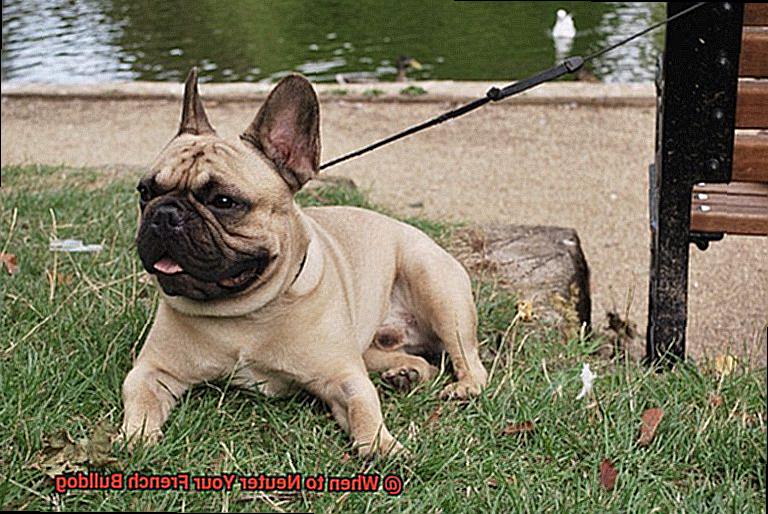
0gvHvrIbQ-4″ >
How to Care for Your French Bulldog After the Procedure
Caring for your French Bulldog after the neutering procedure is essential to ensure a speedy and comfortable recovery. To help your furry friend get back to their usual self in no time, here are some tips on how to care for them during the recovery period.
Create a Restful Environment
Make sure your pup has a soft, comfortable place to rest during the recovery process. Use blankets or pillows to support their body, and provide them with easy access to food and water. If necessary, use an Elizabethan collar to prevent them from licking the wound.
Monitor Their Diet
During this time, it’s important to regulate your dog’s diet as they may have a lack of appetite due to the surgery. Offer them soft foods such as boiled chicken or rice until they start feeling better and make sure they’re getting plenty of water too.
Keep the Wound Clean
To prevent infection and promote healing, make sure the incision site is clean and dry at all times. Use any medicine prescribed by your veterinarian, and contact them if you notice any signs of fever or pain in your dog.
Reduce Anxiety Levels
It is vital to keep your French Bulldog relaxed and calm during this period. To reduce anxiety levels and promote relaxation, try using a calming pheromone spray or diffuser in their resting area.
Also Read: When to Neuter A French Bulldog – Allfrbulldogs.com
Conclusion
Neutering your French Bulldog is an important decision that should not be taken lightly. While it can provide numerous health and psychological benefits, it’s essential to consider all the variables before making a choice. Talk to your vet for personalized advice on when to neuter and weigh the risks and potential health issues related to early or late neutering.
Ensure a safe and painless procedure by following your vet’s instructions. During recovery, pay extra attention too – provide a secure resting place; limit their diet; keep their wound clean; and reduce anxiety with a pheromone spray or diffuser.
Neutering your French Bulldog is ultimately a personal decision that needs careful thought.
